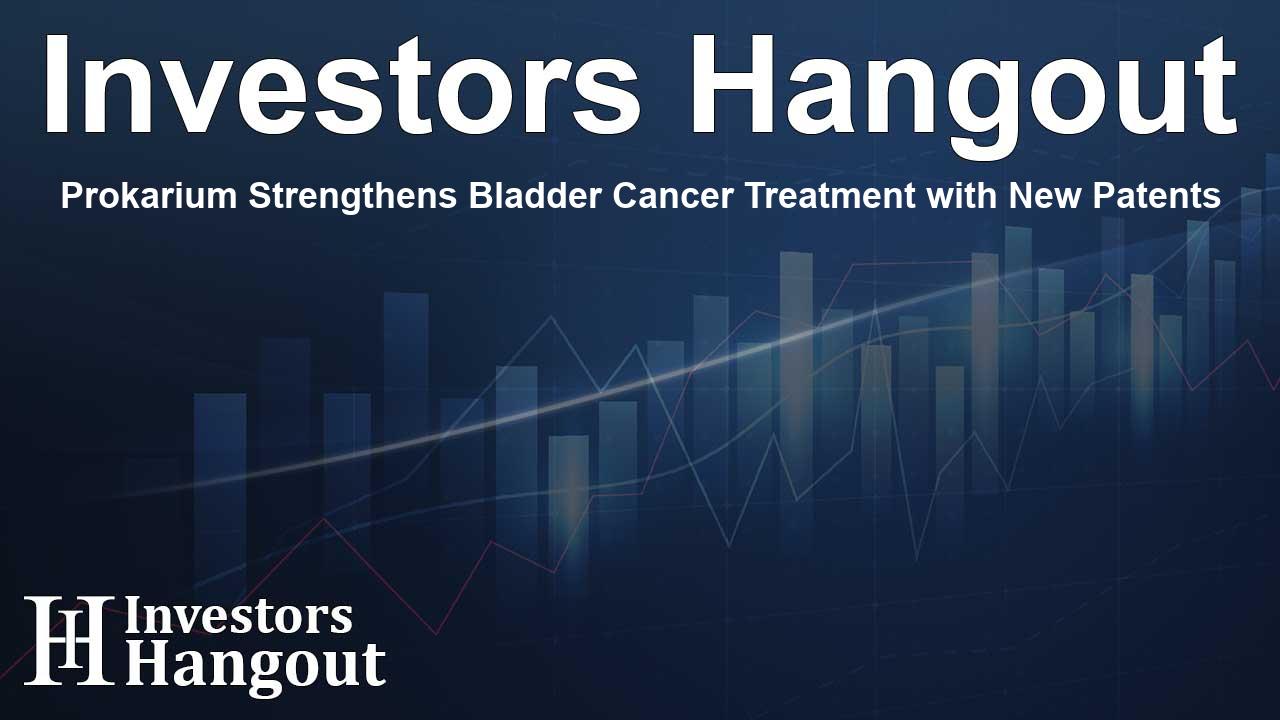Prokarium Strengthens Bladder Cancer Treatment with New Patents

Prokarium's Recent Advances in Cancer Treatment
Prokarium has made significant strides in the field of biopharmaceuticals, particularly in the treatment of cancer. With the receipt of two new U.S. patents from the United States Patent and Trademark Office (USPTO), the company is actively positioning itself as a leader in novel cancer therapies. These patents point to innovative approaches that have the potential to fill critical voids in how cancer, especially bladder cancer, is treated.
Details of the New Patents
The first patent, associated with application No. 17/752,707, focuses on an exciting new method: the co-administration of Prokarium's proprietary Salmonella strains alongside immune checkpoint inhibitors. This synergy is aimed at increasing the overall effectiveness of those inhibitors, potentially leading to better clinical outcomes for patients. In the words of Dr. Livija Deban, Chief Scientific Officer at Prokarium, this patent signifies a pivotal advancement toward optimizing the power of oncology treatments. It opens doors to further research and development in this promising area.
Enhancing Cancer Treatment Approaches
Dr. Deban emphasizes that this novel combination reflects a broader trend toward enhancing existing therapies through innovative methods. As Prokarium continues to explore ways to amplify the therapeutic effects of immune checkpoint inhibitors, it illustrates a commitment to developing not only effective treatments but accessible ones as well. This inherent value is appealing to potential investors and partners looking to back transformative technologies in the oncology domain.
Focusing on Bladder Cancer
The second patent, application No. 18/559,543, outlines an advanced method for treating neoplastic diseases using Salmonella. This method is important because it stimulates a strong immune response while concurrently targeting tumor cells. According to Kristen Albright, Chief Executive Officer at Prokarium, securing this patent significantly strengthens the company's intellectual property portfolio while underscoring their commitment to battle bladder cancer more effectively. The goal is to establish a robust foundation for Prokarium's clinical programs.
Strategic Implications for Partnerships
With these advancements, Prokarium strengthens its market position and enhances its attractiveness to strategic partners and investors. The company's focus on addressing large, underserved markets, particularly in cancer immunotherapy, positions it uniquely in the biopharmaceutical landscape. This proactive approach paves the way for future collaborations that can lead to groundbreaking research and treatment options.
Innovation and the Future of Cancer Therapies
Prokarium's commitment to innovation is evident in its lead program, currently undergoing clinical trials as part of the PARADIGM-1 trial. This program aims to deliver results in preventing bladder cancer recurrence through scalable manufacturing processes. Their Living Cures platform is another cornerstone of their approach to treatment, transforming traditional therapies into programmable solutions that are accessible and customizable for patient needs.
Clinical Trial Developments
As the clinical trial for the investigational immunotherapy ZH9 progresses, Prokarium continues to enroll patients across multiple centers in the United States. This study represents a significant opportunity to explore how immunotherapy can effectively prevent recurrences in non-muscle invasive bladder cancer. Prokarium’s leadership in this area demonstrates its commitment to creating clinical solutions directly aimed at improving patient care and outcomes.
Frequently Asked Questions
What recent patents did Prokarium receive?
Prokarium received two new U.S. patents related to innovative cancer treatments including a method enhancing immune checkpoint inhibitors and an advanced Salmonella-based treatment.
How do these patents impact cancer treatment?
These patents strengthen Prokarium's approach to cancer therapy by potentially improving efficacy in existing treatments and creating novel therapeutic options.
What is the PARADIGM-1 trial?
The PARADIGM-1 trial is Prokarium’s lead clinical program aimed at preventing bladder cancer recurrence through innovative therapeutic approaches.
How does Prokarium's innovation benefit patients?
The innovations from Prokarium focus on creating scalable, effective treatments aimed at improving patient outcomes while reducing the treatment burden.
What role does the Living Cures platform play?
Prokarium’s Living Cures platform enables the development of customizable and programmable therapeutics that transform precision medicine into practical treatment options.
About Investors Hangout
Investors Hangout is a leading online stock forum for financial discussion and learning, offering a wide range of free tools and resources. It draws in traders of all levels, who exchange market knowledge, investigate trading tactics, and keep an eye on industry developments in real time. Featuring financial articles, stock message boards, quotes, charts, company profiles, and live news updates. Through cooperative learning and a wealth of informational resources, it helps users from novices creating their first portfolios to experts honing their techniques. Join Investors Hangout today: https://investorshangout.com/
Disclaimer: The content of this article is solely for general informational purposes only; it does not represent legal, financial, or investment advice. Investors Hangout does not offer financial advice; the author is not a licensed financial advisor. Consult a qualified advisor before making any financial or investment decisions based on this article. The author's interpretation of publicly available data shapes the opinions presented here; as a result, they should not be taken as advice to purchase, sell, or hold any securities mentioned or any other investments. The author does not guarantee the accuracy, completeness, or timeliness of any material, providing it "as is." Information and market conditions may change; past performance is not indicative of future outcomes. If any of the material offered here is inaccurate, please contact us for corrections.









